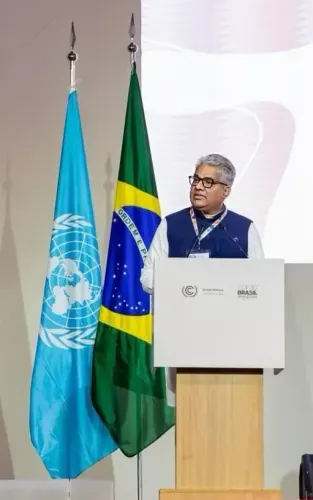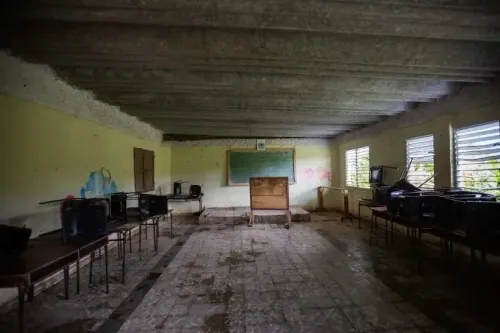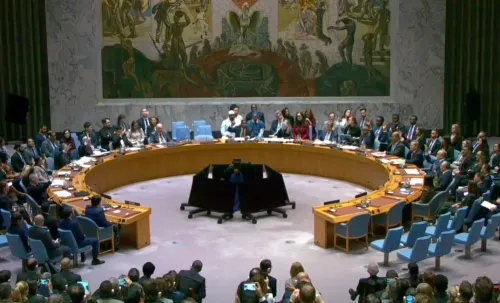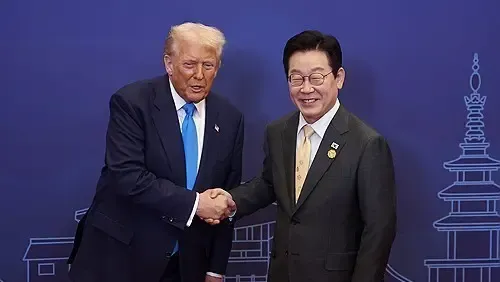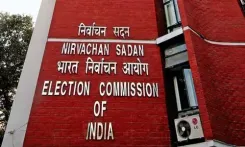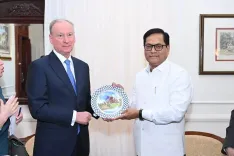Is Sustainable Development a National Imperative for Thailand?
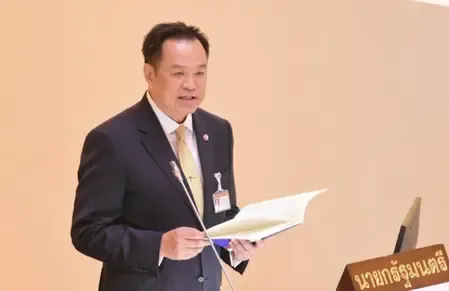
Synopsis
Key Takeaways
- Sustainability is essential for national resilience.
- Three key dimensions: economic, social, and environmental.
- Thailand's geographic advantages position it as a trade hub.
- Government incentives will support clean energy initiatives.
- Addressing immediate challenges while planning for the future.
Bangkok, Oct 3 (NationPress) The Prime Minister of Thailand, Anutin Charnvirakul, underscored the essentiality of sustainable development as a pressing national priority amidst global unpredictability. His vision seeks a harmonious blend of economic, social, and environmental stability.
During his keynote speech at the Sustainability Expo 2025, Anutin articulated that sustainability has evolved from being merely optional to becoming the country’s "lifeline" in navigating through economic fluctuations, trade rivalries, geopolitical tensions, and the challenges posed by climate change, as reported by Xinhua News Agency.
He highlighted that an effective approach to sustainability must consider three fundamental dimensions: economic resilience, a sustainable environment, and the quality of life alongside social well-being.
Anutin pointed out Thailand's strategic advantages, mentioning its central location within the ASEAN region and the connectivity provided by the East-West Economic Corridor, which could position the nation as a pivotal trade and investment hub.
He further accentuated the cultural diversity and religious harmony prevalent in the Southeast Asian nation as significant assets, alongside a robust political and economic system that has withstood previous crises.
Looking ahead, Anutin stressed the importance of adaptation: "The key is to adapt in line with global rules while simultaneously seeking new markets that can accommodate our products and production bases," he stated.
The Thai government is prepared to facilitate this transition through tangible measures, including incentives for businesses that embrace clean energy and environmentally sound manufacturing processes.
On September 29, PM Anutin Charnvirakul presented his government policy statement to parliament, detailing a comprehensive strategy aimed at economic revitalization amidst diverse challenges.
In his address to the National Assembly, Anutin, also serving as the interior minister, recognized the "uncertainty on all fronts" confronting the nation and emphasized the necessity to tackle immediate issues while establishing a foundation for sustainable growth.
Economically, Anutin expressed that his government’s agenda intends to elevate income, reduce living costs, address debt concerns, encourage savings, and rebuild tourist confidence through enhanced safety protocols and domestic stimulus initiatives.
In terms of national security, priorities include the peaceful resolution of border disputes with Cambodia and a proactive foreign policy to bolster Thailand’s international stature, as he conveyed to the joint sitting of parliament.
Regarding social issues, he affirmed the administration’s commitment to combat all forms of illegal gambling, uphold the rule of law, and decisively tackle corruption while ensuring fiscal discipline, transparency, and operational efficiency.
Additionally, he noted that the policy encompasses environmental matters, with plans to expedite the implementation of early disaster warning systems, particularly in high-risk regions, and to promote a low-carbon society through support for clean energy.
The Prime Minister assured that all policies will align with the current national strategy, which aims to guarantee equitable access to education and healthcare, empower the private sector, particularly SMEs, to adapt to global developments, and enhance national industries toward targeted sectors.

